Published Mar 2, 2013
Jefferies Tubes #6: A Look At Trek Audionovels
Jefferies Tubes #6: A Look At Trek Audionovels
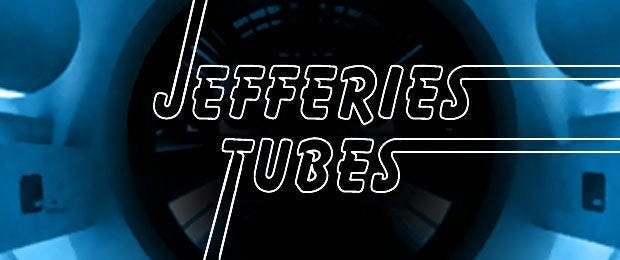
During the 1940s, radio sitcoms such as Life with Luigi and weekly adventure programs like The Adventures of Superman entertained audiences in the proverbial theater of the mind. Without visuals to help thenarrative, radio shows depended on great voice actors, strong scripts, and audience engagement of their imaginations.
The original Star Trek was much like the radio programs of two decades prior. While featuring amazing visual effects that set the standard for televised science fiction, the 1960s version of Trek depended, ironically, on many of radio’s conventions, such as narrator summaries in the form of Captain’s Logs and the use of actors trained in radio performance, most especially William Shatner and James Doohan. Doohan was a master of voice work, appearing in more than 4000 radio programs.
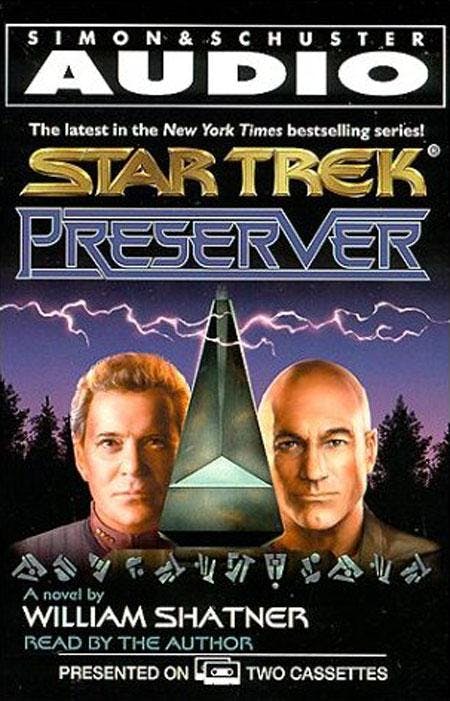
In fact, Star Trek depended so heavily on radio conventions that it is possible to isolate the audio of most of the original 79 episodes and enjoy them as if they were radio shows, devoid of any of its visuals. Excellent, descriptive dialogue and good, distinctive voice work are some of the reasons for this. Radio dramas generally waned in popularity with theadvent of television, but in some nations like Britain, radio plays remain a vibrant form of entertainment. With audio cassette tapesand CDs making it possible for people to listen to their favorite books while driving or exercising, and because of Star Trek’s heritageand connection to radio dramas, perhaps it was inevitable that Trek novels would be among the most popular adaptations during the1980s and 1990s audiobook era.
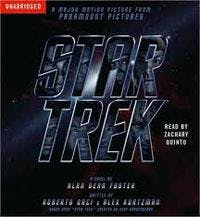
Indeed, many of Star Trek’s most famous actors have narrated audio books, including William Shatner, Kate Mulgrew, Jonathan Frakes, Michael Dorn, Tim Russ and Rene Auberjonois. Guest actors from the television shows and movies have also performed novels, including Bibi Besch and Mark Lenard.
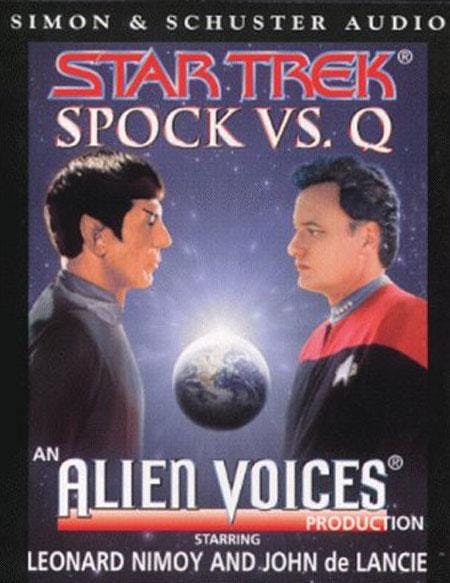
One of the joys of listening to the audiobooks is hearing how the actors interpreted and reinterpreted other characters. Hearing William Shatner perform as Spock or Uhura, or James Doohan interpret the role of Data offers a fun alternative reality.
Star Trek audiobooks proved so popular that several original audio adventures with special effects and full casts were created. During 1994 and 1995, three Captain Sulu adventures were created especially for Simon and Schuster Audioworks, with George Takei playing Sulu, and a full cast of actors, much like the audio dramas of the 1940s. Alien Voices, a company created by Leonard Nimoy and John de Lancie to promote audio dramas, partnered with Simon and Schuster Audioworks during the 1990s and 2000s to produce two humorous and thought-provoking audio debates that provided a fascinating look at what would have happened if Spock had met Q. Recorded in front of a live audience, the debates rang close to classic radio sitcoms in tone and feel. And when you have the Kathryn Janeway "autobiography" Mosasic, written by Star Trek: Voyager co-creator Jeri Taylor, performed by Kate Mulgrew, it is difficult not to think of it as a lost episode of the television show.
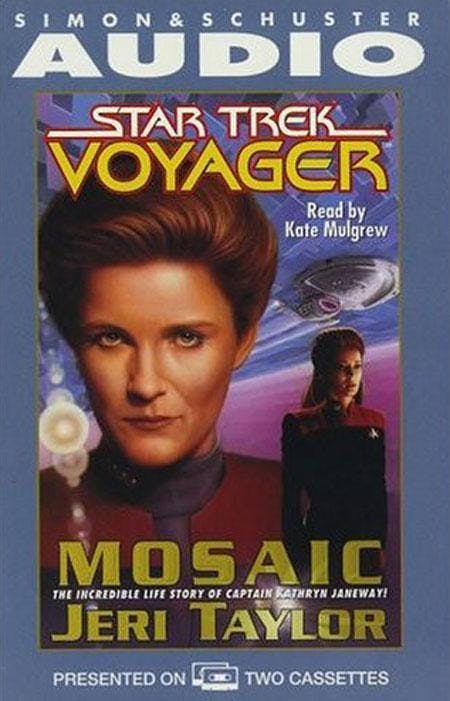
While the last official audio drama was the adaptation of the 2009 film novelization, fans have expressed their creativity and love of Trek by creating their own unofficial Internet radio dramas and podcasts, an interesting marriage of an old idea with a newer technology. As fans of the audiobooks, we hope that Star Trek Into Darkness will return Zachary Quinto to the recording booth to continue the tradition started by George Takei and Leonard Nimoy back in 1986. Or, would it really be continuing a tradition that goes back all the way to the 1940s?
______________________________
Maria Jose and John Tenuto are both sociology professors at the College of Lake County in Grayslake, Illinois, specializing in popular culture and subculture studies. The Tenutos have conducted extensive research on the history of Star Trek, and have presented at venues such as Creation Conventions and the St. Louis Science Center. They have written for the official Star Trek Magazine and their extensive collection of Star Trek items has been featured in SFX Magazine. Their theory about the “20-Year Nostalgia Cycle” and research on Star Trek fans has been featured on WGN News, BBC Radio, and in the documentary The Force Among Us. They are currently researching all known paperwork from the making of the classic episode "Space Seed" and are excited to share some previously unreported information about Khan's first adventure with fellow fans next year when the research is complete. Contact the Tenutos at jtenuto@clcillinois.edu or mjtenuto@clcillinois.edu.
